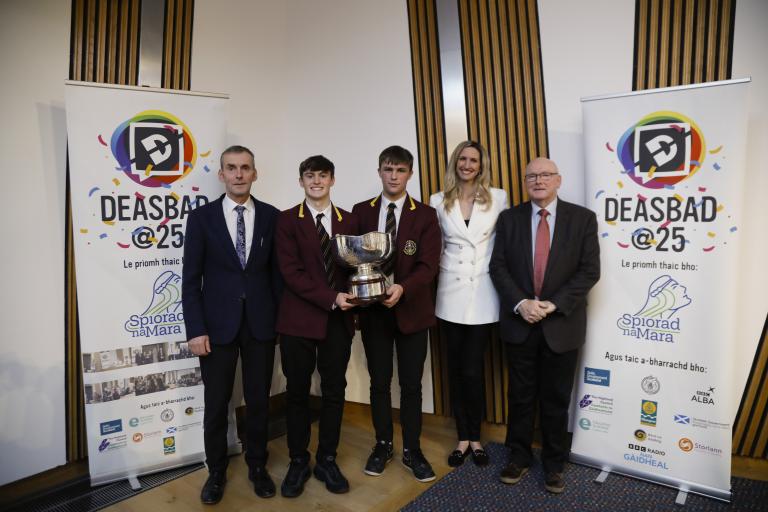
The competition continues to grow in stature as one of the leading platforms for young Gaelic speakers to showcase their skills in debate, critical thinking, and public speaking.
This year’s record-breaking entry highlights the increasing enthusiasm for Gaelic debate among young people and schools nationwide. The preliminary rounds in Stornoway will determine which teams progress to the next stages of the competition, with the final stages taking place in Edinburgh on the 26th and 27th of November 2025.
The National Schools Gaelic Debate has become a much-anticipated fixture in the Gaelic calendar, encouraging pupils not only to refine their language skills but also to gain confidence and experience in expressing themselves in public.
More information on schools participating and the draw for the first two rounds will be made available in the coming weeks.
Organisers are delighted to announce that Spiorad na Mara return as the main sponsor for the second consecutive year, providing vital support to ensure the competition’s continued success.
“We are hugely grateful to Spiorad na Mara for their commitment to Gaelic and to the next generation of speakers,” said Evelyn Coull MacLeod, Chair of the Debate Management Committee. “Their support allows us to provide a high-quality experience for pupils from across the country.”
Martin Whyte, Project Director speaking on behalf of Spiorad na Mara, added:
“We are proud to support the National Schools Gaelic Debate for a second year. At Spiorad na Mara, we believe it is vital to encourage and celebrate the use of Gaelic among young people. The debate not only strengthens language skills but also highlights the richness of Gaelic culture and the importance of carrying it forward for future generations.”